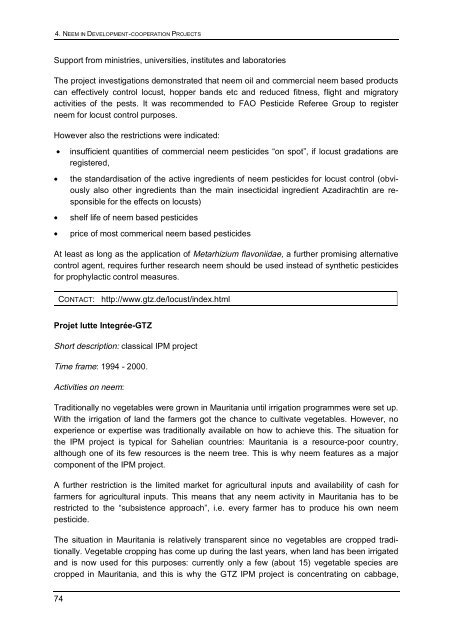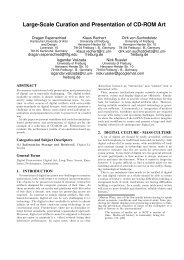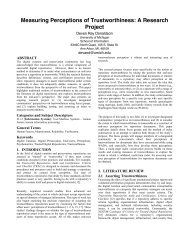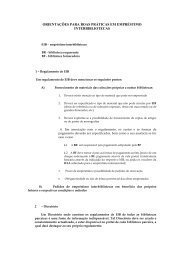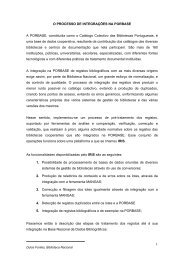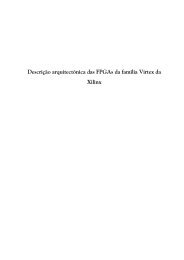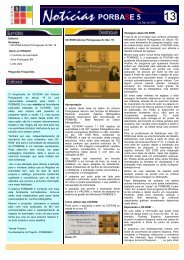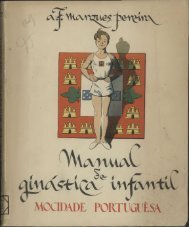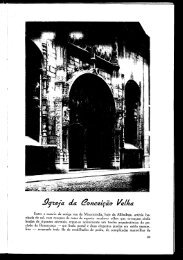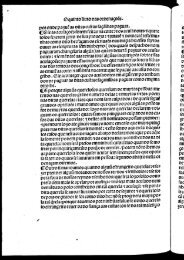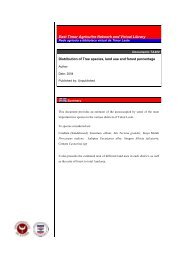Status report on global Neem usage - Biblioteca Nacional de Portugal
Status report on global Neem usage - Biblioteca Nacional de Portugal
Status report on global Neem usage - Biblioteca Nacional de Portugal
Create successful ePaper yourself
Turn your PDF publications into a flip-book with our unique Google optimized e-Paper software.
4. NEEM IN DEVELOPMENT-COOPERATION PROJECTS<br />
Support from ministries, universities, institutes and laboratories<br />
The project investigati<strong>on</strong>s <strong>de</strong>m<strong>on</strong>strated that neem oil and commercial neem based products<br />
can effectively c<strong>on</strong>trol locust, hopper bands etc and reduced fitness, flight and migratory<br />
activities of the pests. It was recommen<strong>de</strong>d to FAO Pestici<strong>de</strong> Referee Group to register<br />
neem for locust c<strong>on</strong>trol purposes.<br />
However also the restricti<strong>on</strong>s were indicated:<br />
• insufficient quantities of commercial neem pestici<strong>de</strong>s “<strong>on</strong> spot”, if locust gradati<strong>on</strong>s are<br />
registered,<br />
• the standardisati<strong>on</strong> of the active ingredients of neem pestici<strong>de</strong>s for locust c<strong>on</strong>trol (obviously<br />
also other ingredients than the main insecticidal ingredient Azadirachtin are resp<strong>on</strong>sible<br />
for the effects <strong>on</strong> locusts)<br />
• shelf life of neem based pestici<strong>de</strong>s<br />
• price of most commerical neem based pestici<strong>de</strong>s<br />
At least as l<strong>on</strong>g as the applicati<strong>on</strong> of Metarhizium flav<strong>on</strong>iidae, a further promising alternative<br />
c<strong>on</strong>trol agent, requires further research neem should be used instead of synthetic pestici<strong>de</strong>s<br />
for prophylactic c<strong>on</strong>trol measures.<br />
CONTACT: http://www.gtz.<strong>de</strong>/locust/in<strong>de</strong>x.html<br />
Projet lutte Integrée-GTZ<br />
Short <strong>de</strong>scripti<strong>on</strong>: classical IPM project<br />
Time frame: 1994 - 2000.<br />
Activities <strong>on</strong> neem:<br />
Traditi<strong>on</strong>ally no vegetables were grown in Mauritania until irrigati<strong>on</strong> programmes were set up.<br />
With the irrigati<strong>on</strong> of land the farmers got the chance to cultivate vegetables. However, no<br />
experience or expertise was traditi<strong>on</strong>ally available <strong>on</strong> how to achieve this. The situati<strong>on</strong> for<br />
the IPM project is typical for Sahelian countries: Mauritania is a resource-poor country,<br />
although <strong>on</strong>e of its few resources is the neem tree. This is why neem features as a major<br />
comp<strong>on</strong>ent of the IPM project.<br />
A further restricti<strong>on</strong> is the limited market for agricultural inputs and availability of cash for<br />
farmers for agricultural inputs. This means that any neem activity in Mauritania has to be<br />
restricted to the “subsistence approach”, i.e. every farmer has to produce his own neem<br />
pestici<strong>de</strong>.<br />
The situati<strong>on</strong> in Mauritania is relatively transparent since no vegetables are cropped traditi<strong>on</strong>ally.<br />
Vegetable cropping has come up during the last years, when land has been irrigated<br />
and is now used for this purposes: currently <strong>on</strong>ly a few (about 15) vegetable species are<br />
cropped in Mauritania, and this is why the GTZ IPM project is c<strong>on</strong>centrating <strong>on</strong> cabbage,<br />
74


